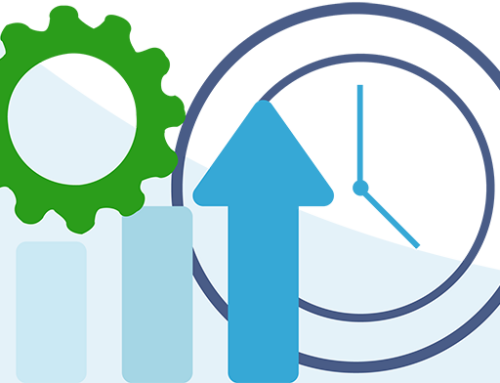 When I talk about workflow and the need for a system that helps you define and standardize your services and then organize those services in a way that gives the firm a big picture view, I often hear from solopreneurs “It’s just me- why would I need something like that?” I know that a good workflow system will help a firm of any size become more efficient and profitable, but I’m not a solopreneur. So I reached out to a few of Aero Workflow’s Sole Proprietor subscribers to help me explain how a solopreneur can benefit from a workflow system as much and anyone else.
When I talk about workflow and the need for a system that helps you define and standardize your services and then organize those services in a way that gives the firm a big picture view, I often hear from solopreneurs “It’s just me- why would I need something like that?” I know that a good workflow system will help a firm of any size become more efficient and profitable, but I’m not a solopreneur. So I reached out to a few of Aero Workflow’s Sole Proprietor subscribers to help me explain how a solopreneur can benefit from a workflow system as much and anyone else.
Sole Proprietors Can’t Miss Deadlines
A need to manage deadlines was probably the first thing everyone mentioned. Unless you have an absolutely foolproof method of organizing your client work, something is going to slip through the cracks– or at least you’re going to spend a lot of time worrying about it. Jody Linick of Linick Consulting put it perfectly, “I was getting tired of writing down all my To Dos on scraps of paper. Thinking about what I had to do the next day, and wondering if tasks were falling through the cracks was keeping me awake at night.“ Regina Moore of Regina Companies put it simply, “As I’ve gotten busier, I’ve become increasingly concerned about overlooking tasks that need to get done.”
A good workflow system like Aero will allow you to schedule all those recurring client tasks- whether they are daily, weekly, monthly, quarterly, or even annual tasks, as well as any one-time projects. Once you have them set up, you don’t have to worry about missing a quarterly sales tax filing for a client– you know that the task will show up on your list the day it needs to get done. Jody Linick can relax because “I’m confident that I’m not forgetting to do things on time. This is especially important for me regarding client filing deadlines, including preparation of sales tax returns, payroll data entry, quarterly reports, etc.”
Everyone Needs Checklists
I spend a lot of time talking about the need to document your processes and create step-by-step checklists. While I always mention the benefits of good documentation for delegation and scalability, solopreneurs benefit from documenting their processes too. Even the very best of us have bad days (after all who’s going to cover for you if you’re sick?), and your checklists will keep you from missing some crucial step. Having documented processes is even more important when it comes to client work that happens only occasionally. Victoria Cameron of VRC Consulting says, “As I get older, there’s just too much to keep track of. When tasks need to happen quarterly or once a year, a checklist helps me remember how to do it.” Jody Linick finds that the documentation helps both her and her clients, “I … write up for myself a “How To” list of the steps I should take to complete a recurring task. This helps me to remember to complete each step, so I don’t leave something out. Using Aero Procedures, I create customized documentation on the particular needs of each client’s books, stored in the cloud, which I use for myself, but which I could share with the client as needed.”
Solopreneurs have a need for documentation that goes beyond the everyday running of their firms. In a service business like accounting, knowledge capital is one of the firm’s most valuable assets. And, as an ‘army of one’ all of the firm’s knowledge capital is in your head– unless you’ve taken the time to create proper documentation. All the Aero solopreneurs liked having this backup “just in case.” Victoria Cameron has no intention of ever hiring a second person, but thinks it’s important to know “what happens to my clients if something happens to me? Besides, I do plan to retire someday, and my business has a value because it’s not all in my head.” Jody Linick likes that her documentation is there to “use as a training tool if I ever decide to hire staff or ask a colleague to provide vacation coverage for me.”
Organizing Your Sole Proprietorship Resources
Beyond documentation and scheduling, a good workflow system will give you a way to organize all of the resources that are needed to complete the work. It’s crucial for the firm’s efficiency that bits of information, like usernames and passwords or tax ID numbers, are easily available when and where the client work is being done. Solopreneurs have the same organizational challenge as anyone else keeping track of all those little bits in a secure, but easily available location. Victoria Cameron says it’s really important that “all passwords and other bits are all in the Aero Vault. A password manager is not quite enough– for example, I need to have QuickBooks license numbers for my Desktop clients handy. I keep links to individual logins, link to basecamp project, SmartVault links, Cloud9 login information (clients always lose it!), link to a Google Drive folder for less-secure things… Anything I need is going to be right there when I need it.”
Seeing the Big Picture
Most people assume that a solopreneur automatically sees the big picture since they always know what’s going on. But it turns out that it’s so easy to get lost in the weeds of day to day client work, that the Big Picture can elude you without a good workflow and practice management system. With all of your work organized in one system, you can easily see your work by day, by week, by month– allowing you to plan ahead and be proactive about managing your time.
A good workflow system is also going to give you information about work that’s been completed. For example, Aero has built-in time tracking that provides users with objective data about the firm’s performance. Our solopreneurs find this kind of data just as valuable as bigger firms. Regina Moore says, “I have been billing mostly on a flat fee, and now I’m excited…to find out how much time I’m actually spending on those clients, and if I’ll need to adjust my fees.” Victoria Cameron loves knowing how much time is spent each day on email and “Tracking time on ‘quick questions’ “
It’s clear to me that, yes, a solopreneur absolutely can benefit from a workflow system. If you’re a solopreneur I’d love to hear what you think!
A version of this blog originally appeared in Insightful Accountant.



